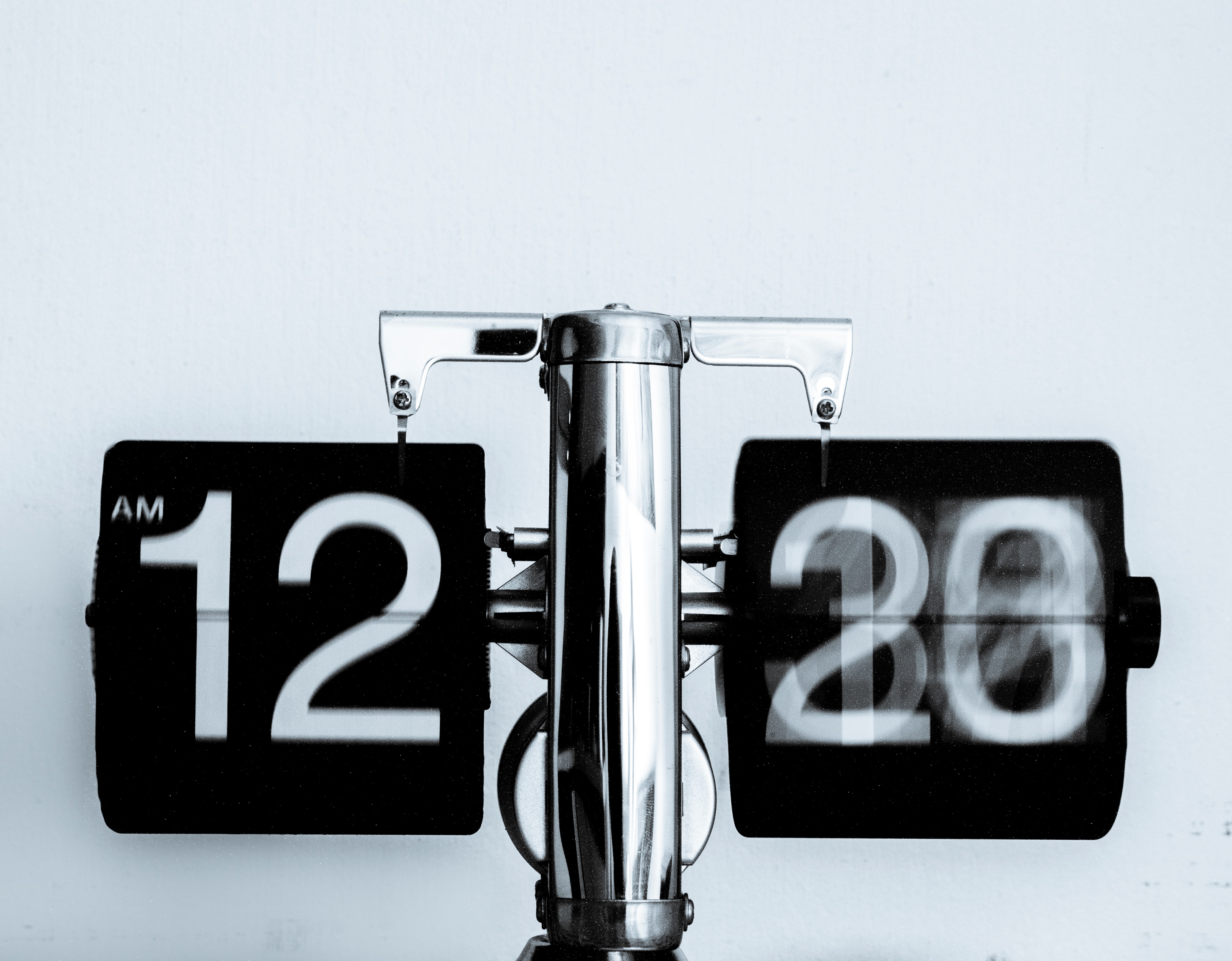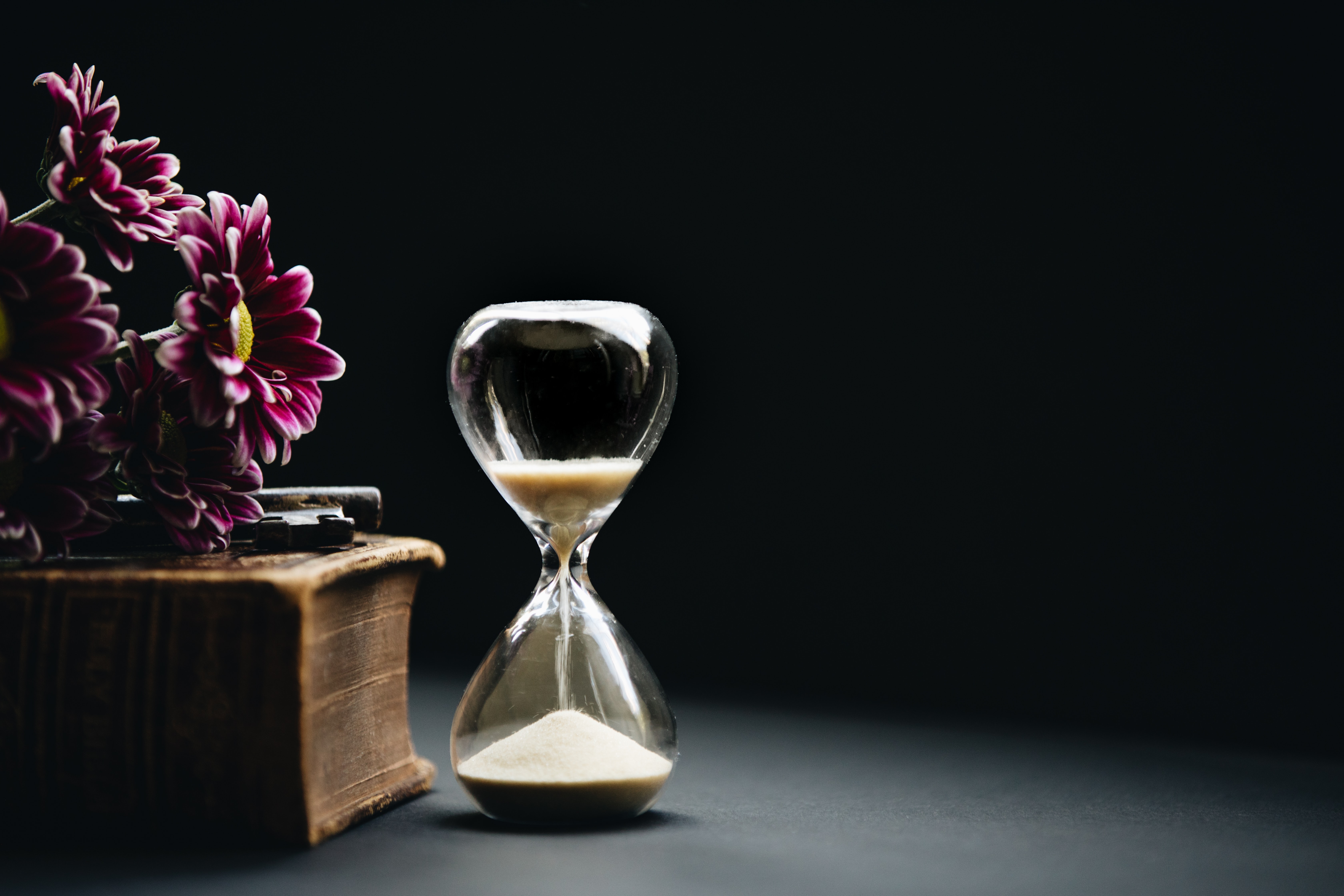
Photograph by Djim Loic on Unsplash
I have never understood the phrase “to spend time”.
We do not live in the satirical world described in the 2011 film In Time. I cannot go down to my local store and purchase a loaf of bread in exchange for a few minutes. Unlike money though, there is no saving your time for a rainy day, there is no investing your time with the promise of more in return, and there is no conscious choice for its use. Life is a relentless consumer of time, your time.
Nor is our time infinite. None of us are immortal. A fact we are all too aware of in the current global climate.
As we isolate indoors, we are discovering alternative ways to “spend” our time. Throughout the world, people are doing odd jobs around the house, mowing the lawn, and painting spare bedrooms. While lockdown progresses there are an increasing number of people utilising this "extra" time to engage in new activities. Activities, which previously, they have not had enough time for. These activities often include learning a new language, picking up their old guitar, or even writing their first blog posts…
To put it simply, these are our life goals.
We clearly value these activities. If we did not, then we would not be using this opportunity accomplish these life-long dreams. But what was stopping us before our everyday lives were shocked out of equilibrium, and can we continue to pursue these aspirations when normality returns?

Photograph by Nathan Dumlao on Unsplash
When asked why we have yet to chased our dreams, the answers that often come to the forefront are along the lines of: “I haven’t got the time”, “I’ve got a lot going on right now”, or the favoured “I’m just too busy”.
Let’s take a minute to reflect, and determine whether this is really true by considering how we allocate our time.
“We spend about a third of our lives asleep” is something we have all most likely heard at one point or another. However, if you’re in the UK then it is likely that you’re not getting your recommended 7-9 hours of beauty sleep each day [1,2]. According to a 2018 sleep survey, the average UK adult gets 6 hours and 19 minutes of sleep each night [2]. Just shy of those medically recommended levels. We clearly need to count those sheep a little more often if we are to catch the appropriate amount of zzz’s.
We are not getting our recommended amount of sleep. So, we must be working too much, right? Work. The time sponge that prohibits us from pursuing our passions? Well...
According to a 2015 report by the UN, the average man and the average woman in the UK spend 5 hours and 42 minutes and 6 hours and 4 minutes on work activities each day, respectively [3]. When you think about it, this is a large proportion of our days, but not so much to consume all of our time. Before you start thinking, “yeah but what about all the cooking, cleaning, and washing”, this work includes both paid and unpaid work. We may think our lives are consumed by our jobs, though,in reality , we are lucky enough to have autonomy over a significant amount of our time.

Photograph by Vera Davidova on Unsplash
The numbers are quite astounding. In the UK, the average female and the average male spend 5 hours and 29 minutes and 6 hours and 9 minutes at their own leisure each day, respectively [4]. To put this into perspective this is 83 days and 93 days, respectively, each year doing whatever we want.
But what is it that we apparently want to do so much that means we did not have time for our life goals?
A lot of us, when we picture our leisure time, before the pandemic, might imagine a game of sport, a coffee with friends, or a visit to a gallery. While it is true that a lot of us “spent” large portions of our leisure time being active, social, and cultured, none of these are comparable to the time dedicated to one particular type of leisure activity…
Electronic media.
Electronic media is how the vast majority of us “spend” our time at leisure. The average person in the UK will sit in front of the television for 3 hours and 23 minutes each day [5]. When you combine this with the average 2 hours and 11 minutes we “spend” staring at our mobile phones, the results are terrifying [6].
While average television viewing time has been declining over the years, this is being offset by increased screen consumption on other platforms such as mobile phones or gaming consoles [5,6]. Our lives, our time, are increasingly being consumed by electronic media.
The truth is, we are “spending” our time online, instead of “investing” our time, our lives, in the aspects of life we care about most. The aspects of life that bring us the most fulfilment.

Photograph by Jan Kronies on Unsplash
Not many of us say our life ambition is to watch Ross and Rachel argue about whether they were on a break for the millionth time, nor do many of us aspire to watch all the dog videos on the internet. Yet, we actively choose to prioritise these things over our life goals. We do not have to eliminate them from our lives though. A little change can go a long way. If we just spend a little of each day on our dreams, then one day they will become a reality.
When lockdown ends, and the world returns to normality, we can set a new equilibrium. An equilibrium where, each day, we spend a little less time in front of a screen, and a little more time investing in ourselves. The choice is, has been, and will continue to be long after this pandemic ends, ours.
[2] UK 2018 Sleep Survey & Statistics, 2018. (https://www.chemist-4-u.com/sleep-study/#div3)
[3] Time Use Across the World: Findings of a World Compilation of Time Use Surveys, Jacques Charmes, 2015, UNDP Human Development Report Office.
[4] “Leisure time in the UK: 2015”, United Kingdom Office for National Statistics, 24th October 2017.
[5] Communications Market Report, Ofcom, 2nd August 2018.
[6] https://www.zenithmedia.com/consumers-will-spend-800-hours-using-mobile-internet-devices-this-year/